The Clinical Immunology Department at the Norfolk and Norwich University Hospital is part of Eastern Pathology Alliance (EPA), a network also involving the James Paget University Hospital, Gorleston and the Queen Elizabeth Hospital, King’s Lynn. These pages cover Clinical Immunology services at NNUH.
In order to maintain high standards of analysis this Department participates in national external quality assessment schemes (EQA) including General Autoimmune, Specialist Proteins and Allergy, and maintains its own internal system of quality control checks (IQC), routine validation and daily calibrations on all assays where appropriate. Full details of EQA scheme participation are available on request.
The Immunology Department at NNUH is accredited by the United Kingdom Accreditation Service (UKAS) to ISO 15189:2012. The defined schedule of tests for which the laboratory is accredited can be found by clicking on the following link for schedule no.21365
These pages contain information about how users can access our services, who to contact for advice, which tests we perform, sample requirements, normal ranges and turnaround times. The information provided is accurate at time of issue and is reviewed and updated regularly.
For patients using this website, please note that any information provided should not be used for self-diagnosis and should you have any concerns about your health please consult your GP.
If you find any errors within this information or would like to make any comments and/or suggestions for improvement, please contact Diane Murley, EPA Quality Manager on 01603 286900 or email [email protected]
General Sample Guidelines can be downloaded here.
Sample Acceptance/Rejection Criteria can be downloaded here
A guide to changing internet explorer margins for all ICE forms can be found here
For most routine laboratory procedures, consent can be inferred when the patient presents himself or herself at a laboratory, or other suitable area, within a primary or secondary care setting, with a request form and willingly submits to the usual collecting procedure.
The laboratory infers informed consent has been obtained when samples are received. It is the responsibility of the clinician requesting the test to ensure that informed
consent has been obtained.
This consent includes notification to third parties where required by law for example under
the Health Protection (Notification) Regulations 2010: we are required to notify any infection
of public health significance to local public health department as mandated by the regulation.
Please ensure your patient is aware of this before submission of samples for testing.
Samples are a potential source of infection and should be treated accordingly. Please fill all sample bottles with the correct volume of blood to ensure correct anticoagulation, and all containers must be securely closed. Leaking samples with gross contamination of contents and containers are discarded. Pocket bags are available for sample transport. Samples should be placed in the appropriate container, which must be securely fastened. This must be placed in a clear plastic bag and sealed. Samples accompanied by forms without specimen bags must be put into marsupial bags with the request form being placed in the side pouch.
Refer to local Trust policies.
Mon-Fri 09:00 – 17:00
Tel 01603 289847 (Ext: 5847)
Email: IP&[email protected]
Out of hours: First contact the relevant site practitioner.
There are occasions when extra tests are required to be added to existing samples for patient management. Follow this link to view information about add-on tests
Add-on investigations from within the Trust
NOTE – Only Add-On requests from the following locations will be accepted, unless the sample cannot be repeated:
Emergency Medicine A&E, AMUL/M, EAUS
Critical Care
NICU
CCC
“If we can find the sample it will be processed but this may take a while. Also if you are intending to take another sample at any time in the near future this may be the quicker route.”
“If we can find the sample it will be processed but this may take a while. Also if you are intending to take another sample at any time in the near future this may be the quicker route.”
Some specialised or low volume assays are referred to external laboratories for analysis; these may take up to 4 weeks for a result to become available. Please contact the laboratory if there is any urgency for these investigations. Information regarding specimen type for referred tests can be obtained by contacting the laboratory.
In line with accreditation requirements we endeavour to use accredited laboratories whenever possible. Further information on the reference laboratories we use can be obtained from the Individual Head of Section or from the Quality Manager if required.
Authorised results are available on the ICE system, which is updated in real time throughout the day. If a result is needed urgently and/or cannot be found via the ICE system the laboratory may be contacted on 01603 286929/286932 (Ext 2929/2932).
Results of urgent requests if ICE access or electronic delivery is not available and unexpected results, which may aid the immediate patient management, will be telephoned.
In the event that the laboratory is unable to deliver the required service due to equipment failure we will endeavour to contact all relevant users.
For criteria for telephoning results click here
Due to IG compliance requirements, results cannot be communicated directly to patients.
For Key factors known to affect test performance and result interpretation click here
NNUH
Immunology can be contacted by calling our laboratory on direct dial 01603 286922 or internal ext. 2922.
Outside the office working hours you will be directed to phone another number for enquiries. Qualified Biomedical Scientists are available in the department to undertake emergency and certain routine tests. Special or unusual tests may have to be analysed in batches and may not be available outside the core times.
Urgent Immunology testing must be discussed with the laboratory
The laboratory can be found in East Block Level 1 sign posted ‘Pathology’
EWI-D-001 Last updated 13/03/2024 (3)